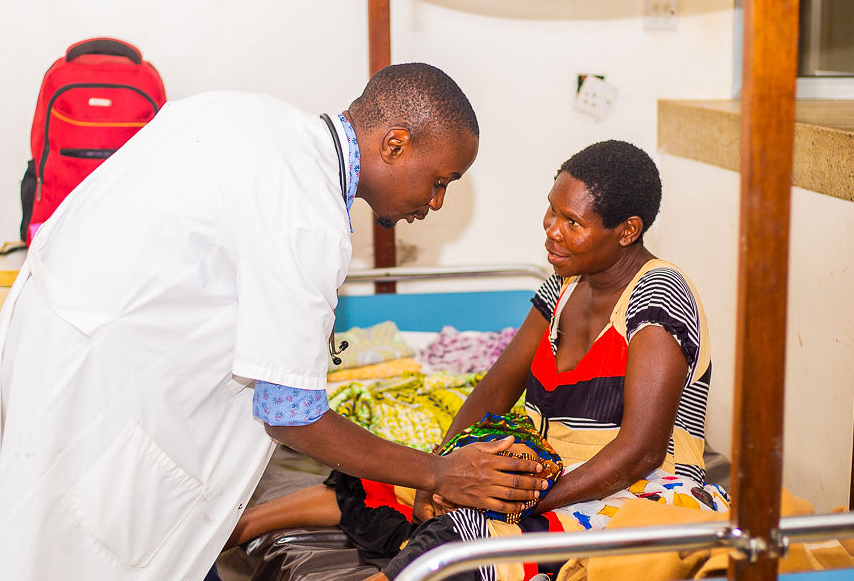Sustainable reduction of maternal and neonatal deaths is highly prioritized among the development partners, stakeholders, and government of the United Republic of Tanzania. CSSC as one of the stakeholders, is implementing the USAID’s Pamoja Tuwekeze Afya (PATA) activity committed to ensure faith-based organizations health facilities improve quality of maternal and neonatal health service based on the World Health Organization (WHO)’s reproductive, maternal, neonatal and child health (RMNACH) standards.
St Kizito Hospital is located at Mikumi district in Morogoro region whereas a region maternal death was 120 and 115 in 2021 and 2022 respectively. The hospital is among 25 health facilities supported by USAID’s Pamoja Tuwekeze Afya (PATA) activity in Morogoro region. The hospital is awarded for excellency in achieving the regional target for maternal death reduction (facility level) for a period of January-December 2022. Since the beginning of the USAID’s PATA activity support in 2021, the hospital has experienced zero maternal death until today.
The activity supported the hospital with quality improvement, enhanced clinical audits and implementation of Maternal Perinatal Death Surveillance Response (MPDSR) recommendations. USAID’s Pamoja Tuwekeze Afya (PATA) activity also capacitated 12 health care workers on essential newborn care, antenatal care and safe surgery and, equipped the hospital with the reproductive, maternal, neonatal and child health (RMNACH) equipment.
Expressing her appreciation after receiving the excellency award, Incharge of the hospital, Sr. Dr. Antusa says “I thank USAID’s Pamoja Tuwekeze Afya (PATA) activity team for their support and mentorship ensuring we maintain quality, improve our maternal and neonatal services and achieve the goal of reducing maternal death in the region for three consecutive years.”
St. Kizito Hospital, is the exemplary health facility for initiating strategies to improve maternal and neonatal health care. Currently, there is no recommended tool to follow-up and document the outcomes of the babies born with the birth injury, which could help the healthcare providers to document the follow-up visits.
Explaining the situation on the neonatal services, Sr. Josephine Mwamponei, the labor ward in charge at St. Kizito Hospital, says “We had a high number of babies who were born with low Appearance, Pulse, Grimace, Activity and Respiration (APGAR) score, and we didn't know what exactly to do on their follow-ups."
During the last quarter of 2022, after training and a series of mentorship and on-job coaching from USAID’s PATA activity, they developed a locally tailored register for monitoring and follow-up of the newborns delivered with low APGAR score.
"We saw the need to monitor and follow up the babies with low APGAR scores, after the trauma as how we were trained. We established a register which is locally tailored here for follow-up clinics." Says Sr. Josephine
Currently the babies are assessed and provided with necessary treatment as per their required needs. Also, the mothers are counselled on managing the babies at home after discharge. Currently, they have a group of babies in follow-up clinics.
St. Kizito Hospital's best practices are recommended to be scaled up to other facilities to ensure newborns health grow and improving neonatal services.
USAID’s Pamoja Tuwekeze Afya (PATA) activity is contributing to the government efforts of reducing maternal and neonatal death by supporting 70 faith based-organization health facilities in Morogoro, Mwanza and Arusha regions to improve the quality of reproductive, maternal, neonatal and child health services.

